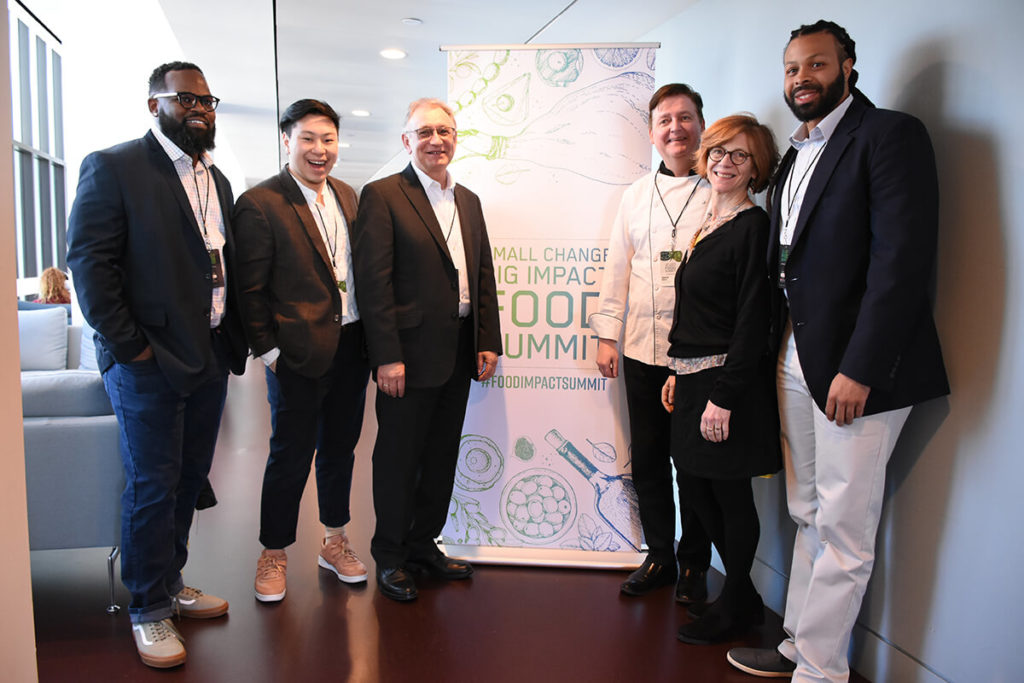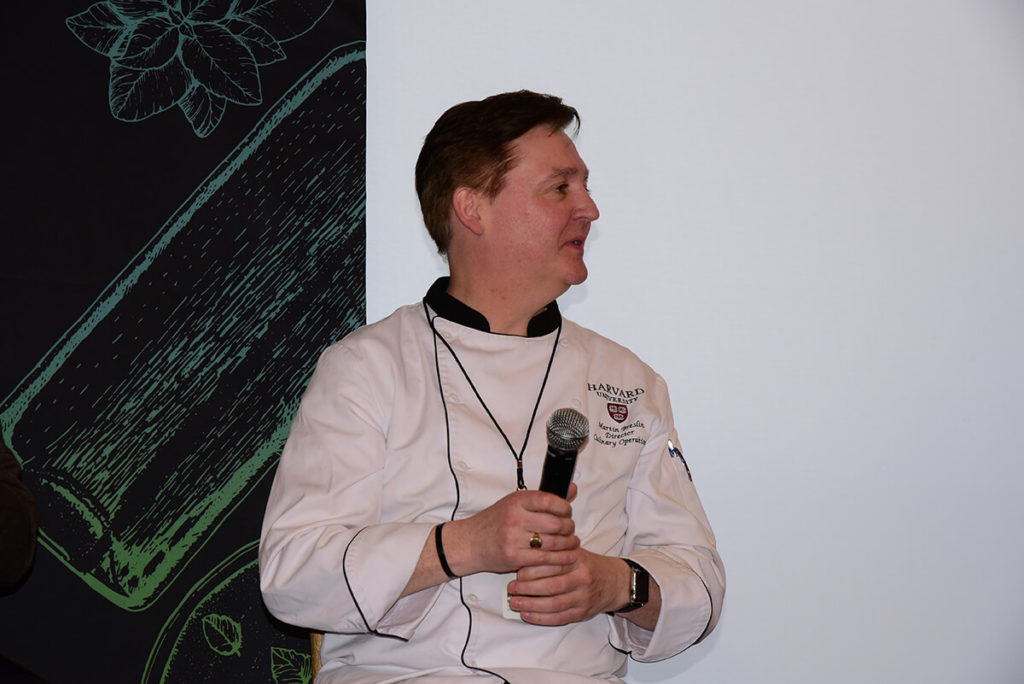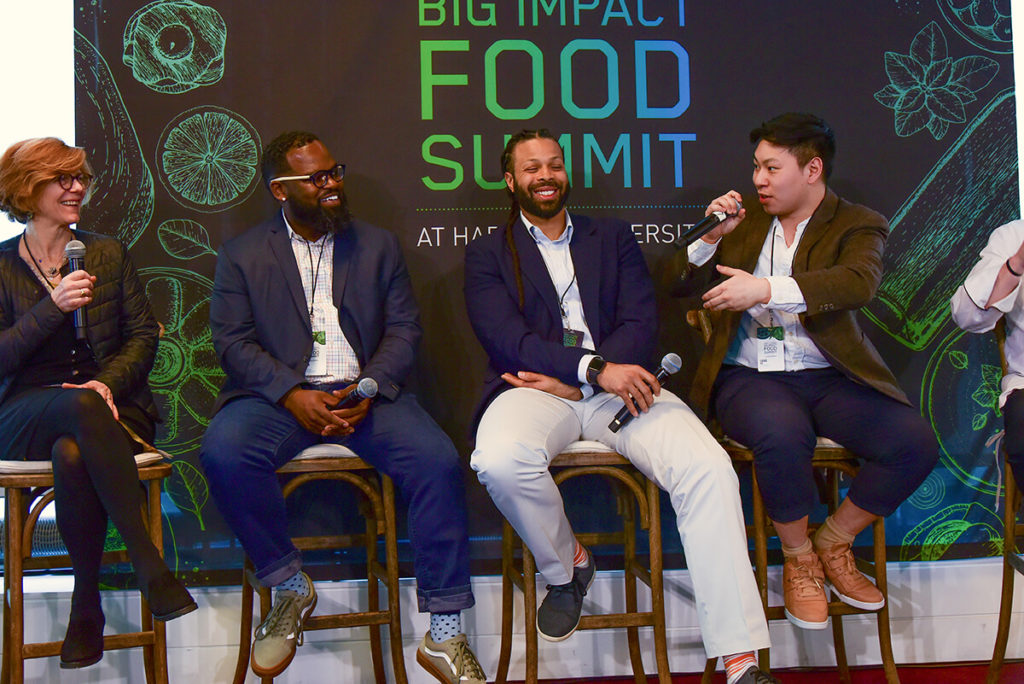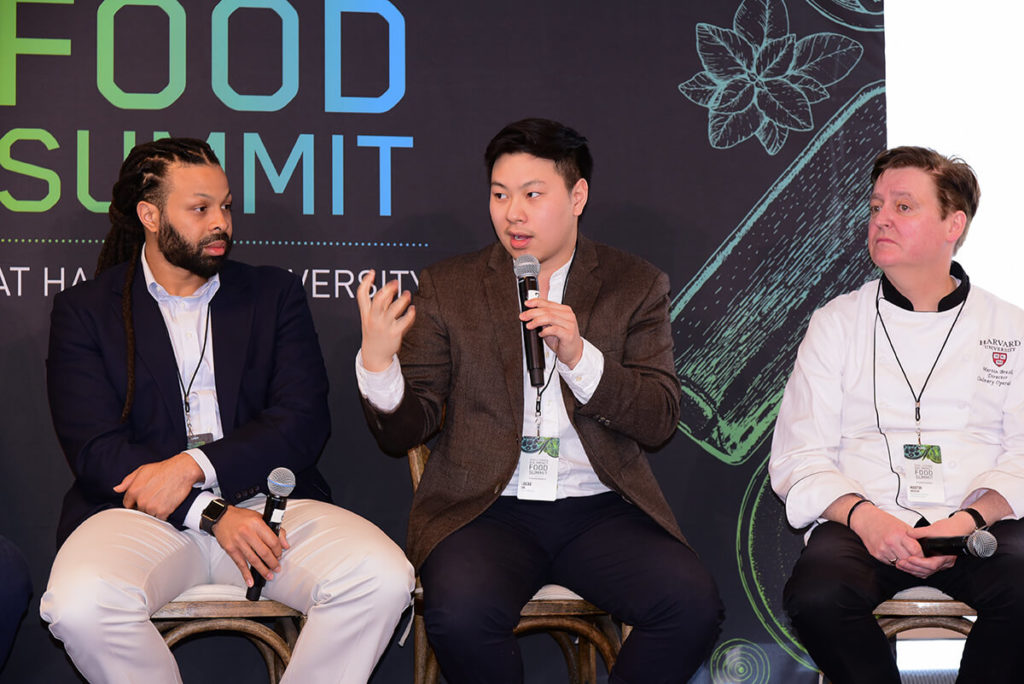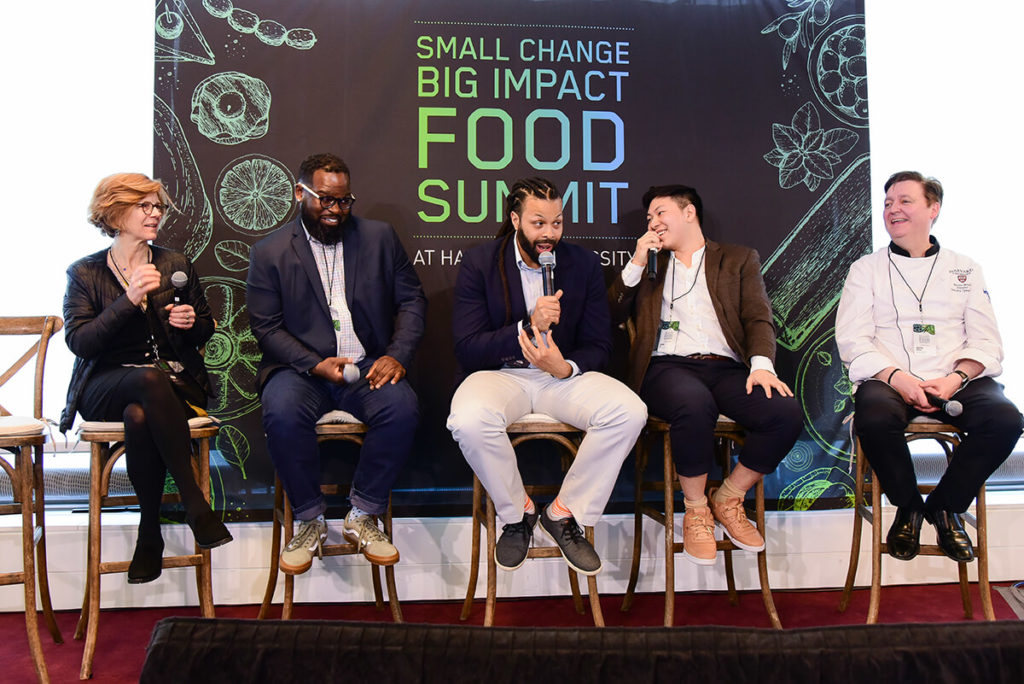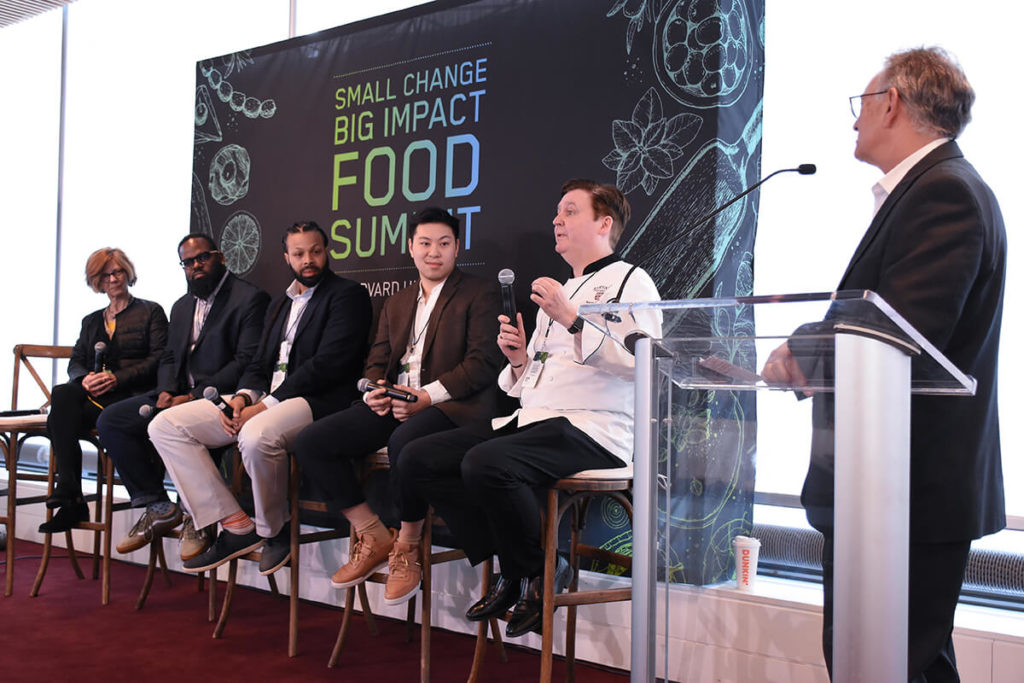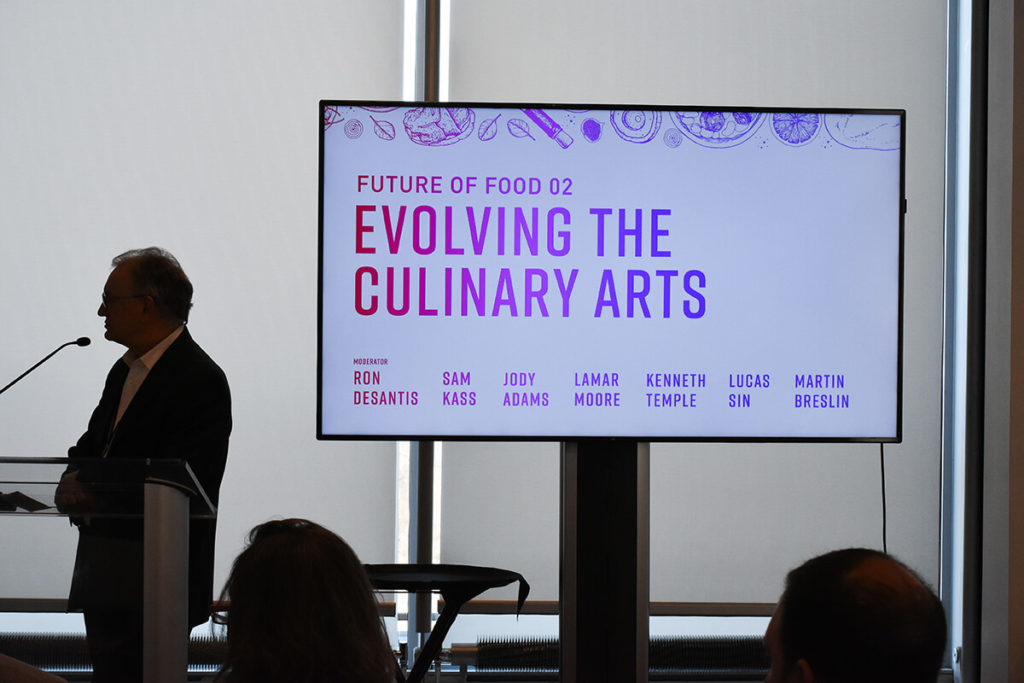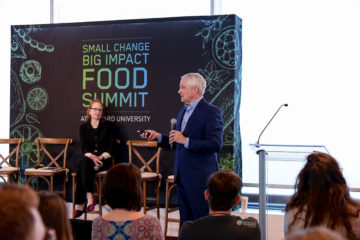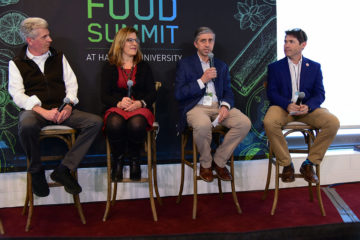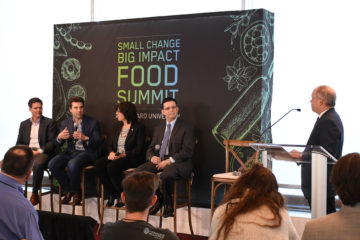Future of Food Part 02: Evolving the Culinary Arts
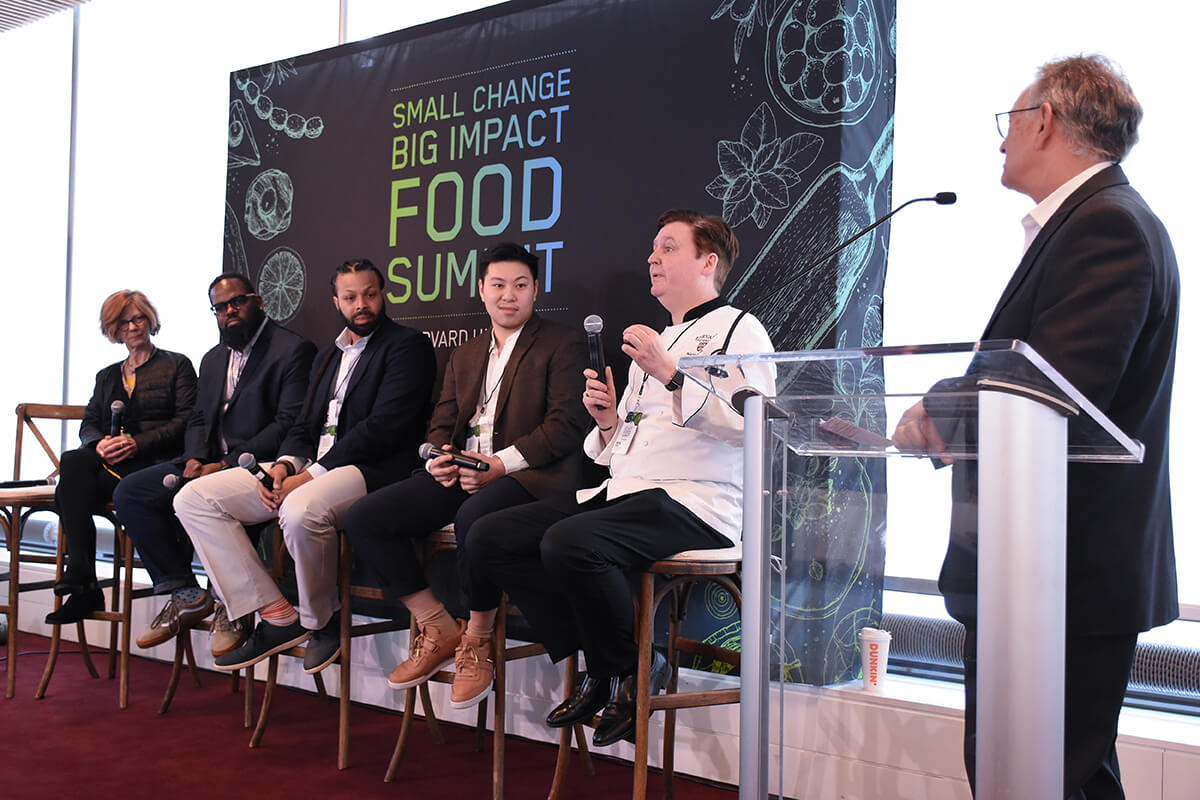
Food tribes such as Whole 30, paleo, and gluten-free present a new source of community and ways of life for consumers. As personalized nutrition continues to grow, it’s vital to anticipate how your products provide sustenance, enjoyment, and lifestyle benefits to these emerging tribes.
Food is meant to nourish and provide pleasure. Is that easy to achieve with food tribes?

Moderator/Interviewer
Ron DeSantis
Certified Master Chef, CEO, CulinaryNXT

Martin Breslin
Director of Culinary Operations, Harvard University Dining Services

Jody Adams
Chef/Co-Owner Trade / Porto / Saloniki

Lamar Moore
Executive Chef & Partner, The Swill Inn & Chit Chat Lounge
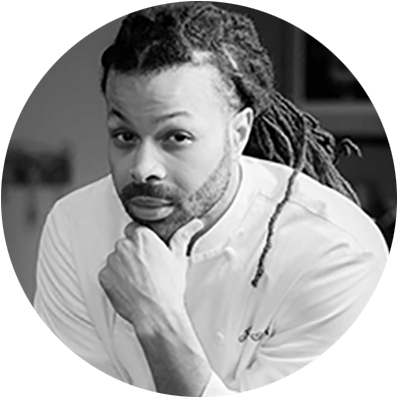
Kenneth Temple
Chef & Owner, Savory, LLC

Lucas Sin
Culinary Director, Junzi Kitchen
Key Takeaways
Focusing on flavor remains critical for these chefs — we want the future of food to taste delicious, after all. Yet in our convenience and food tribe driven era (with ample input from the Internet), these industry leaders must remain versatile as they provide nourishment, choices, and eating pleasure for their customers.
Jody Adams shared that at her (busy) fast casual quick serve Chipotle-like Greek restaurants is different from her white table, James Beard award winning restaurants. And yet she reaches
“more people than I ever did with my fancy restaurants. It’s an exciting time in the restaurant world to be a part of that. I’m thrilled that I can bring great food with the same ingredients to an eight dollar, nine dollar sandwich.”
Lamar Moore said that reconstituting food in his job as a stadium chef taught him how to :
use that for food banks and we’d reconstitute it for the employee meal. I say that because now, in running a bar, we sit down and look at menu conceptuals. I like making strawberry jam and my bar manager said, ‘OK, that’ll be in our strawberry margarita.’ Which helps us be a scratch kitchen
Kenneth Temple talked about composting:
I realized how much waste I collected with onion peels and orange zest. That can be turned back into soil and makes better soil which helps grow different things. My waste has gone down. I’m very cautious about my food waste now.
Lucas Sin explained how the structure and physics of the kitchen for his fast casual Chinese restaurants is structured around the cuisine and his insistence on using woks.
Our pick up times are quick, our food is delicious and I don’t need to use so much salt and sugar because there’s so much flavor in the equipment and method of cooking.
Martin Breslin didn’t tell his cooks when he replaced salt with Cargill’s diamond crystal Kosher salt, and the 30% of sodium reduction wasn’t noticeable in the food.
That little change made a huge impact. We were easily able to reduce sodium by 30% and it was so simple.
